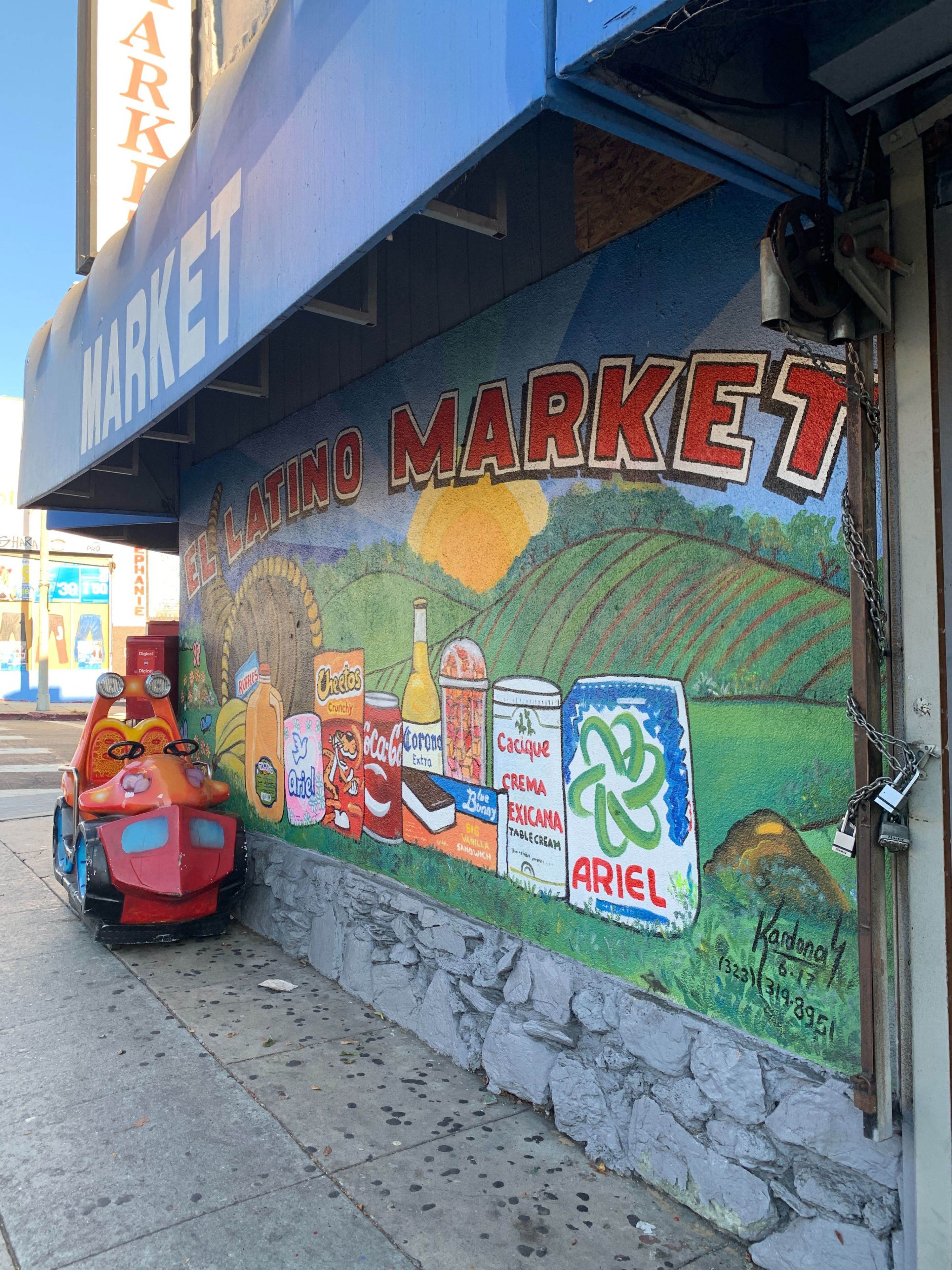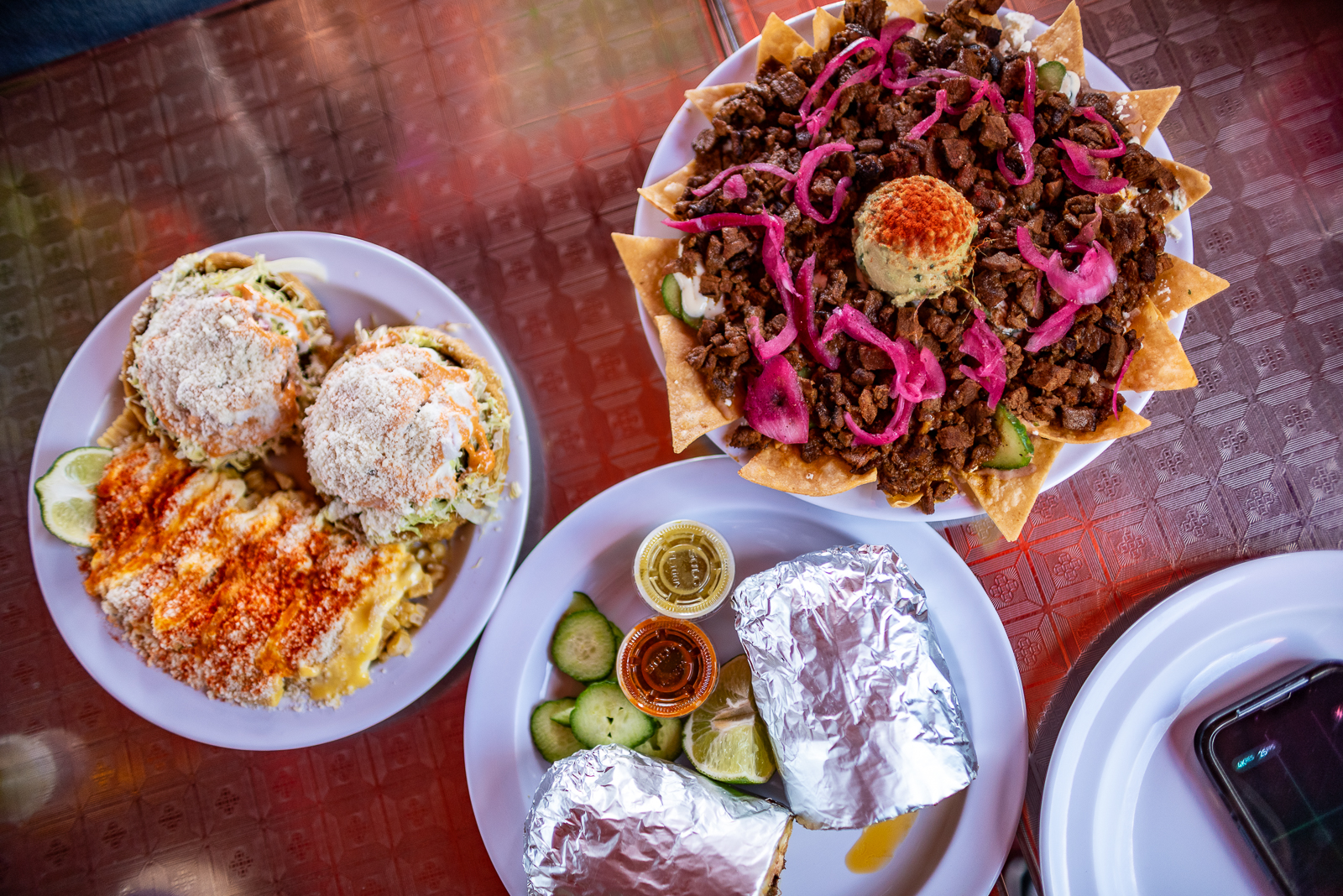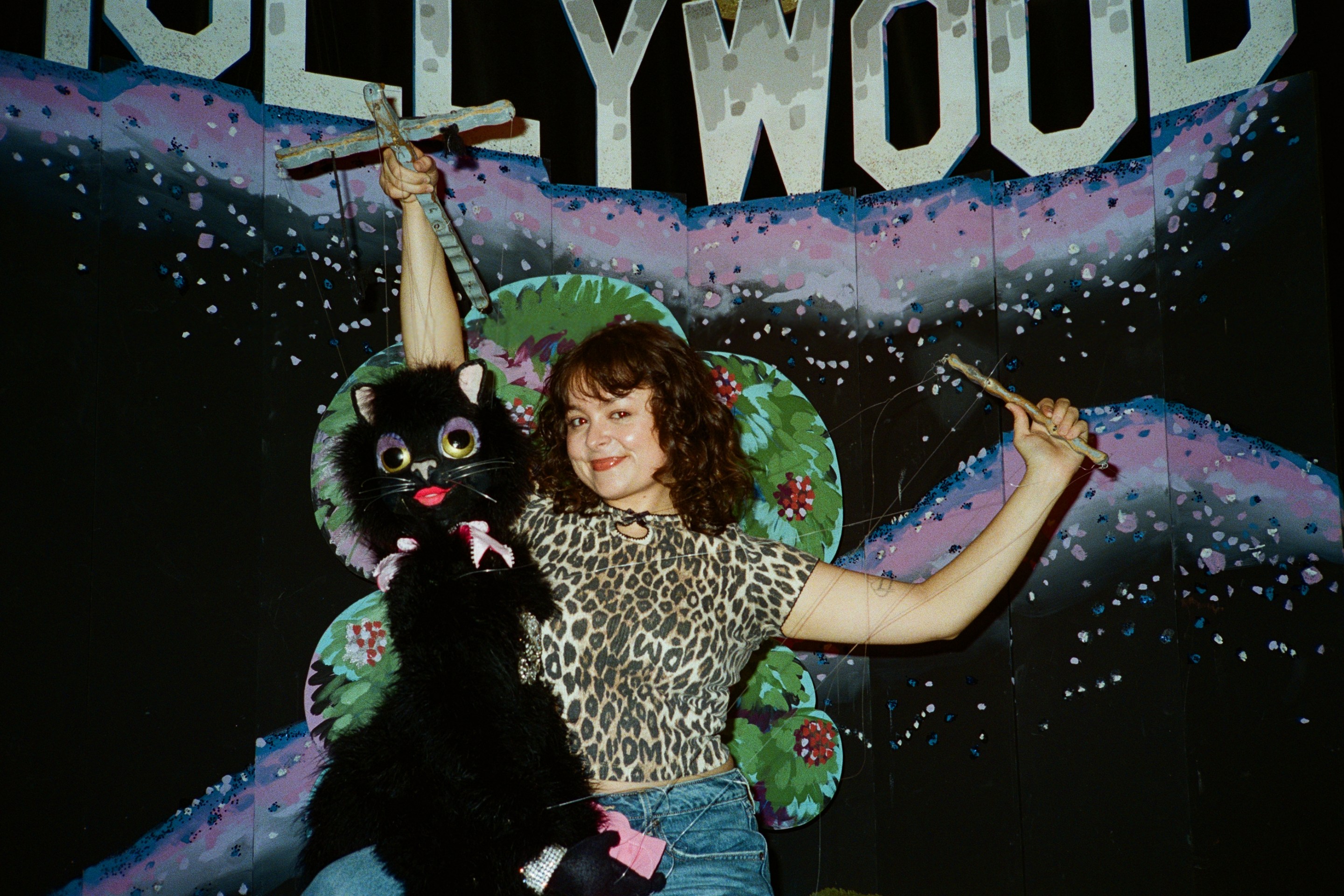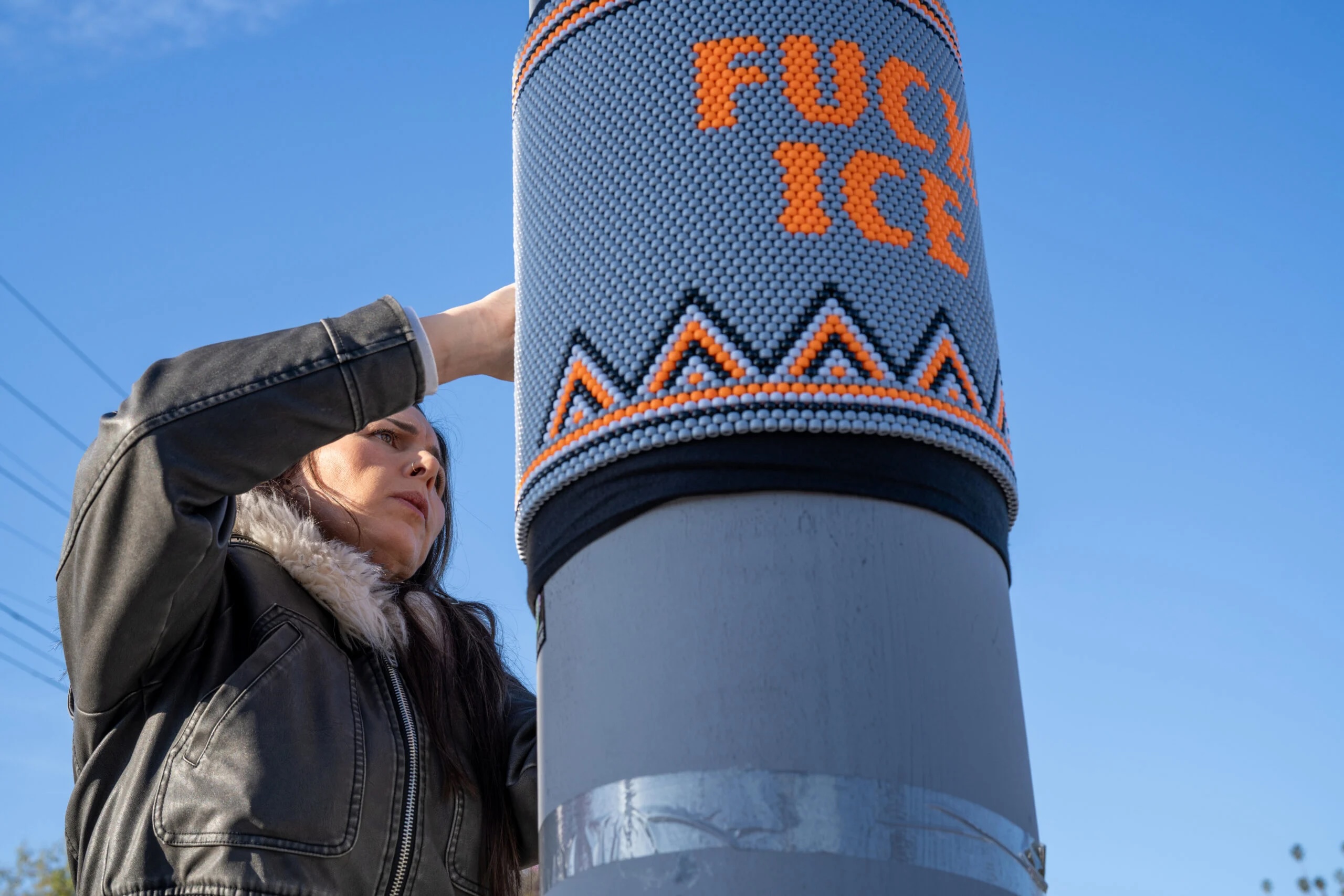[dropcap size=big]K[/dropcap]oreatown had a shining moment two days ago when Nashville country music artist and Album of the Year Grammy winner Kacey Musgraves shared selects from her portrait session at Tom’s 1 Hour Photo. Her resulting social media posts, where she called for her fans to support local businesses, garnered over 174,000 likes on Instagram and over 30,000 likes on Twitter. In other words, Tom’s 1 Hour Photo studio has gone viral, and we have an opportunity to celebrate the vibrant life on his block while the online world is honing in with curiosity.
But Musgraves’ social media posts about Koreatown also made the record needle scratch in our heads; she mentions having found Tom’s 1 Hour Photo “sandwiched between little bodegas.”
A “bodega” is an unfamiliar word to a lot of Angelenos. As we have preferred the terms liquor store, tiendita, or even “mini-market.” Nonetheless, we understood the bodega as a one-stop-shop after the first time we watched “Half Baked” or tuned into Desus vs. Mero, pieces of pop culture that have their origins in New York.
If we look at Tom’s 1 Hour Photo’s neighboring stores from our point-of-view, we see El Latino Market in the corner, a 7-11 across the street, as well as a few liquor stores inside strip malls. They all serve different needs, but none of them are bodegas.
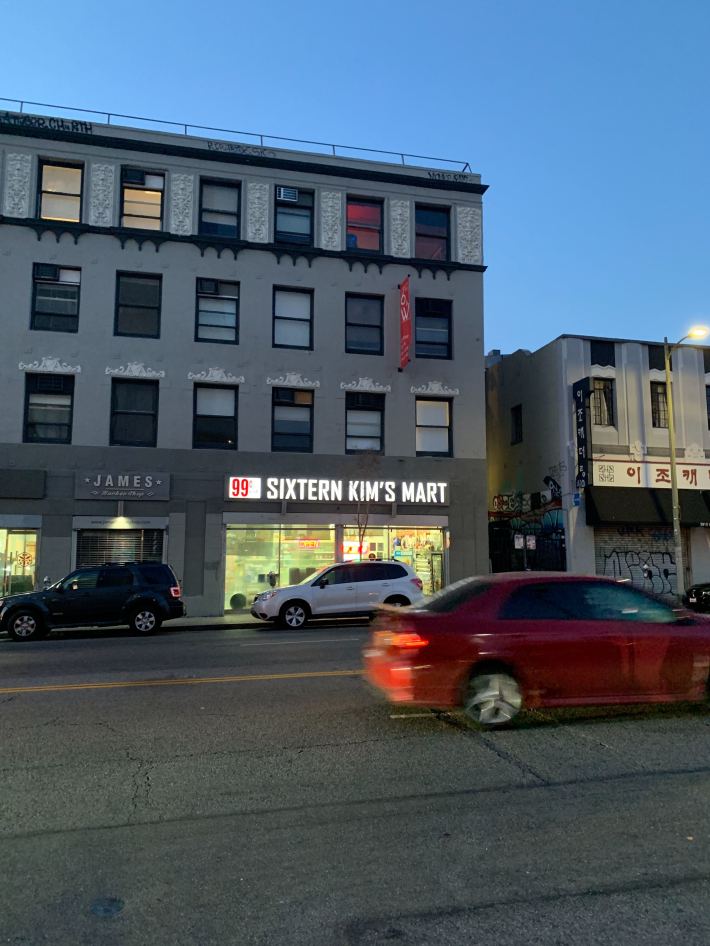
Judith Ponce ran her El Latino Market on the corner of Beverly Boulevard and Normandie Avenue for 16 years. She affectionately refers to her store as a “tiendita."
During quieter hours, Ponce likes to stand outside and greet her neighbors who walk by—19 years ago, she had lived several blocks away and got to know her community before she opened El Latino Market.
“My customers are the same all the time,” she said. “We’ve all known each other for a very long time.”
Ponce’s tiendita has a little bit of everything: snacks, beverages, baked goods, instant ramen, top-of-mind toiletry needs, and beer. El Latino Market does not have a liquor license, so Ponce only carries beer in packs (FYI: without a license, you cannot sell individual bottles or cans of beer).
'Bodegas are an Afro-Latino term that comes from the Caribbean as a part of our language, but they’re usually a term for Latino-owned stores that are for the community.'
Last week near MacArthur Park, food justice advocate LaRayia Gaston opened a bodega. Born and raised in New York with Cuban and Puerto Rican roots, she is amongst the very few in Los Angeles who is forthright about calling her store a bodega.
“Bodegas are an Afro-Latino term that comes from the Caribbean as a part of our language, but they’re usually a term for Latino-owned stores that are for the community,” Gaston explained
Fighting for food justice, Gaston moved to Los Angeles from New York to work with the city’s unhoused and unemployed population. After developing her Lunch On Me job training program in Skid Row, she opened LaRayia’s Bodega in Koreatown to tackle the food desert. Here she offers snacks, beverages, and meals, served hot or cold. Gaston priced most things at 99 cents, though some select meals can range between one and five dollars. The intent is not to profit, but rather to feed her neighbors.
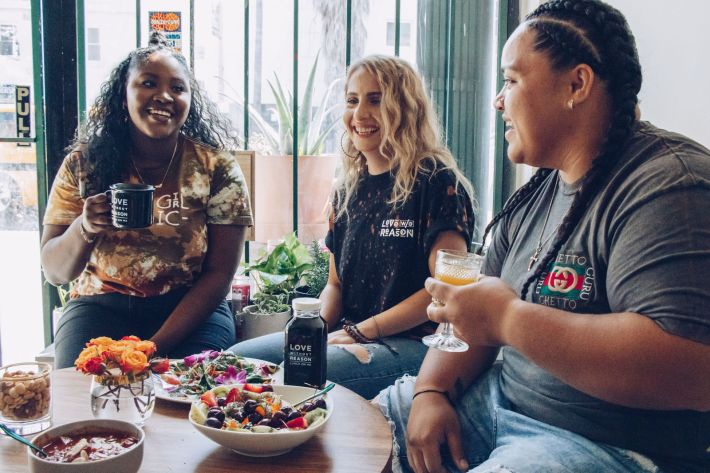
A common distinguishing factor between a bodega and L.A.’s tiendita or corner stores is the size, which also reflects how business owners work with the space they have. Compared to New York, Los Angeles has more square footage to work with, especially when we spread outwards. This has allowed the city’s business owners to feed their neighborhoods with larger carnicerias and liquor stores that also serve deli sandwiches and tacos.
It feels reductive to categorize our corner stores based on their attributes. Large or small, there’s a pulse inside each of them that reflects the community that forms within a metropolis. Ponce’s El Latino Market is nourishing a part of Koreatown just as wholesomely as LaRaiya’s Bodega will begin to fulfill the needs of a different part of the neighborhood.
'A bodega is personal,” said Gaston. “It’s knowing people on your block.'
Musgraves deserves a gracious benefit of a doubt. In fact, there’s comfort in knowing that a passerby can walk by our corner stores and see the same love and care in them in a familiar bodega on the other side of the country. At the same time, there’s an opportunity to give extra attention to how to identify the Los Angeles stores that have been there for its long-term residents.
“A bodega is personal,” said Gaston. “It’s knowing people on your block.”
Knowing this, the tiendita culture is just as crucial to know and amplify. Ponce has cared for her community for almost two decades. Amongst our city’s neon-lit liquor stores and franchise convenience marts, her tiendita is giving the block a personal touch.
It is understandable that there is a regional sense of pride behind using certain words in our everyday life, especially when it comes to words associated with two rivaling cities like New York and Los Angeles. So how can we create the space for all our words to exist? If you’re from the east coast, go ahead and proudly use bodega. If you’re from L.A., likewise with tiendita.
Let’s make sure to support these invaluable businesses, the places that are usually always there for you for those last-minute essentials. A bodega or tiendita-less world is not the world I want to live in.
